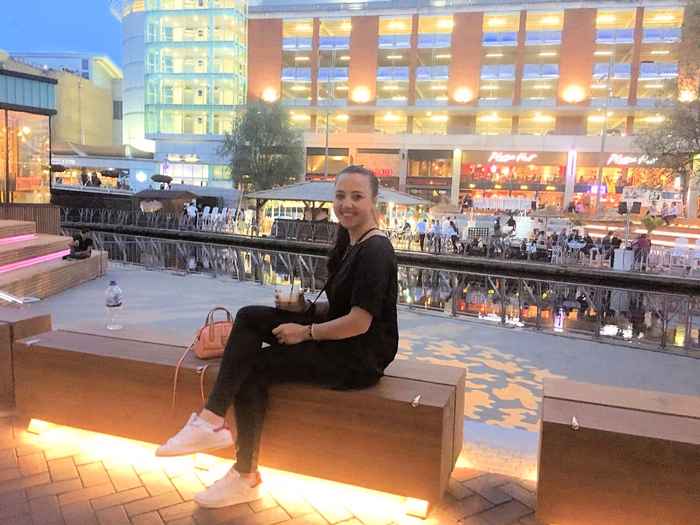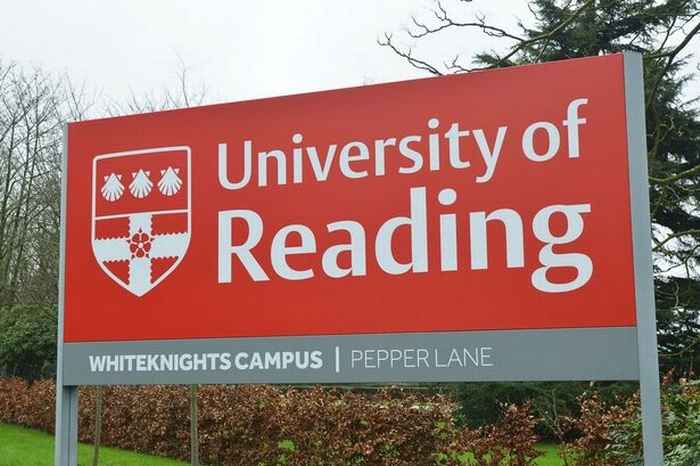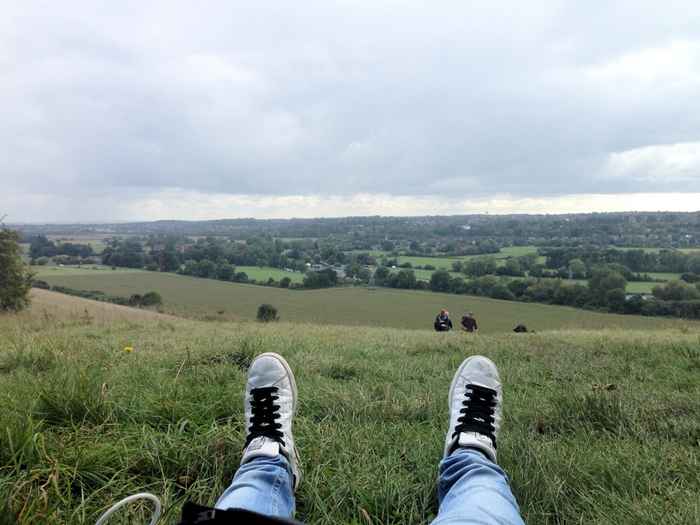Studying catalysts in Reading
Travel report Florentine Veenstra
Reading is a town in Berkshire, England, located on the bank of the river Thames and inhabited with kind, welcoming and hardworking people. It is located between Oxford and London with a thirty minute train ride to Paddington station (London) and a twenty minute train ride to Oxford station. It is one of the UK's top economic areas. Both the cross-country and great western railway lines pass through Reading station, resulting in a great density of travelers on a daily basis.

Most of the people I have met commute daily to work in London. They can’t afford the big city living which is why they live in shared housing in Reading. The city shows its history through its buildings; the rich city center apartments, the luxurious mansions in the south and the cute working houses in the west area. Some of the people I met in the different parts of town share their house with 3 to sometimes 11 adults, who are no longer students and have full time jobs. This was a completely new concept to me. I stayed in a shared living house with four other people with which I had barbeques, brunches and many shared dinner moments to enjoy. These dear friends made my stay wonderful and provided me with ample distraction from my long days of work at the University of Reading.
University of Reading
I arrived at the university at the end of the school year, in the middle of exam period, and found the campus and the hallways completely deserted. This quietness felt like a major contrast to the crowded labs in Amsterdam. I had my own office, a spectroscopic lab and I got to work in a synthesis lab with six fume hoods of which three were allocated to my project. I met a couple of PhD and post doc researchers from other departments who were very kind and welcoming. They invited me to pub-quizzes and drinks, and on one occasion we even went hiking in the very hilly and green Reading region.

Cycling up the mountain from the city center to the university terrain took over forty minutes. But upon arrival I would see the forest-like surroundings with huge trees and a lake in the middle of the university grounds. Here I spent six months working together with James Taylor, a PhD student working for professor Frantisek Hartl.
Professor Hartl, a very energetic and charismatic person, made me feel very welcome and wanted. He had amazing stories on a daily basis regarding his paleontology work and his collaborative research in England, the Netherlands and China. He displayed a work-ethic of 11-hour days and combined this with a social life full of friends and sports, which I tried to mirror during my stay. I truly learned a lot from him while experiencing great independence when he had to travel abroad for weeks at a time.
CO2 conversion using electrocatalysts
In the green crisp environment of the university campus I got to work on a project that could possibly aid in the climate change issues. It focused on the conversion of CO2 into CO using electrocatalysts. I studied a series of methylated bpy [Mo(CO)2(η3-allyl)(R2bpy)(NCS)] complexes by means of CV and spectro-electrochemistry. Exciting new complexes were synthesized, characterized and their redox behavior studied extensively. The CO2 reduction achieved by the catalysts was determined in multiple different environments to see which medium and which electrocatalyst was most promising for the reduction of CO2 to CO. The research days were long but that didn’t bother me since the results were so good and the techniques utilized so diverse.
Wonderful memories

I have a great interest in the world and would like to see more of it as much as possible. This was my main reason for choosing an project abroad for doing my master's research. Different cultures have a different approach to science and I think it is important to experience this and be able to understand. Going to England opened my eyes to the opportunities of studying abroad and made me experience that in a sense we are all the same. I would love to help anyone who would like to visit Reading as I did. It truly was a great experience and gave me many wonderful memories, and friends for life.